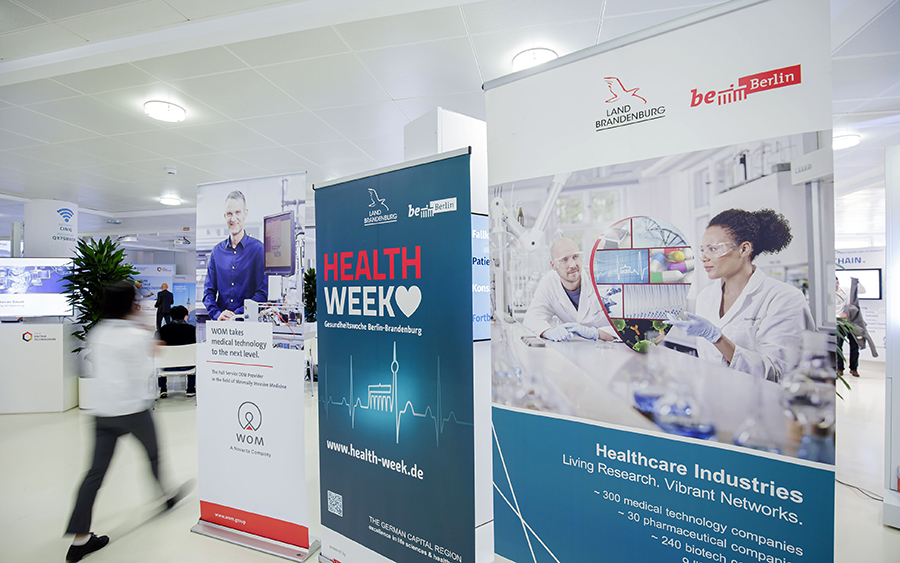For the fifth time, at the invitation of W.O.M. WORLD OF MEDICINE GmbH, Technische Universität Berlin with the Medical Technology Department and HealthCapital Berlin Brandenburg c/o Berlin Partner, science, clinics and companies met to discuss trends in Minimally Invasive Medicine.
At the Fraunhofer Heinrich-Hertz Institute | Forum Digital Technologies in Berlin, the outlook for the year 2030 was discussed this year. The speakers were Prof. Petra Knaup from the University of Heidelberg – Head of the Medical Informatics Section, Dr. Colin M. Krüger from the Immanuel Hospital Rüdersdorf near Berlin – Chief Physician of Department of Surgery and Center for Robotics, Dr. André Roggan from Hamburg, Managing Director of Olympus Surgical Technology Europe, and Dr. Katrin Sternberg from Tuttlingen – Member of the Board of Aesculap AG R&D and QRM.
The speakers quickly all agreed. The current fragmentation of diagnostic and therapeutic services and processes around the patient will be resolved in the future by targeted, networked systems. Dr. Roggan explained that “digitization will make a significant contribution by relieving the burden on healthcare players through intelligent assistance functions and supporting the assurance of high and consistent treatment quality. Computer-assisted diagnostics will play a special role in different process steps of the treatment chain.” For Dr. Sternberg, AI (artificial intelligence) plays an important role, since “data integration will be intensified via the treatment pathway. For example, the necessary data can be inserted intraoperatively using pattern recognition. Whenever the user makes changes, the system learns.”
Prof. Knaup sees the gap between “elderly multimorbid patients with a low affinity for technology and those with a high digital competence who will design their own innovative health solutions” as a challenge for all players in the health care system.
Dr. Krüger provided a special insight into the hospital of the future. He sees two major changes for doctors to
come. On the one hand, he says that “the provision of medical services can be planned, but also measured, through the introduction of digitalized treatment methods. Digital systems will make individual medical performance comprehensible and transparent.” The doctor’s digital footprint will become visible, reflecting experience, results and learning curve. In the future, patients will demand these performance parameters and make their decision on which doctor to choose dependent on them.
The second change will be in surgical education through digital training models. Minimally Invasive Medicine
will undergo a development comparable to that of civil aviation and will first train interventions, complications and risk management in simulation and only then go to the patient.
These challenges can only be solved in a dialogue between science, clinics and industry. The 5th Symposium was able to make a valuable contribution to this.
Stefan Kürbis
Copyright Photos: Berlin Partner/photothek.de
